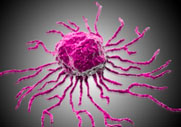Stem Cells


Understanding Basic Stem Cell Biology
Diseases such as diabetes, heart failure and Parkinson's disease affect millions of individuals, yet effective and safe treatments to restore or replace tissue or organ function due to these diseases are limited. Embryonic stem cells, adult progenitor cells, and induced pluripotent stem cells (iPSCs) represent renewable sources of transplantable, fully functional cells that may be used in cell-based therapies to treat diseases such as diabetes, cardiovascular disease and neurodegenerative disorders. Before stem cells and iPSCs can be used effectively and safely in regenerative medicine to repair or replace tissue or organ function lost due to age, disease, damage, or congenital defects, we need a better understanding of how stem cells and iPSCs differentiate and develop from a pluripotent state to a fully committed cell line or tissue. We also need to understand how tissues are normally maintained by their resident stem cells and how these processes change during growth, differentiation, aging, and in response to environmental factors.
How is NIH Common Fund ARRA-funding advancing human microbiome-related research?
NIH Common Fund ARRA funding is supporting research projects aimed at developing new methods for investigating the nature and variability of microbial communities in healthy humans, developing new tools to study how alterations in the microbiome affect health, and advancing the understanding the role of specific microbial communities in specific diseases.
| Researcher | Research Description |
|---|---|
| Dr. Fernando Camargo Children's Hospital Boston |
Developing a novel experimental system using genetic tagging to study stem cell biology in aging and immunological disorders. (Camargo, Fernando, 1-DP2-OD006472-01) |
| Dr. Ipsita Banerjee University Of Pittsburgh At Pittsburgh |
Determining how genetic and environmental factors influence and control embryonic stem cell differentiation into pancreatic islet cells, paving the way for development of new cell-based therapies for diabetes. (Banerjee, Ipsita, 1-DP2-OD006491-01) |
Using Stem Cells in New Therapies
Embryonic stem cells, adult progenitor cells, and induced pluripotent stem cells (iPSCs) may provide innovative new therapies that offer a faster, more complete recovery from illness with significantly fewer side effects or risk of complications. Several Common Fund ARRA projects are using stem cells and iPSCs to develop new cell-based therapies by:
| Researcher | Research Description |
|---|---|
| Dr. James Sherley Boston Biomedical Research Institute |
Determining the biological processes involved in human adult stem cell conversion into pluripotent cells and differentiation into new tissue to advance regenerative medicine aimed at treating liver, blood, and pancreatic disorders. (Sherley, James, 1-DP1-OD000805-01) |
| Dr. John Cooke Stanford University |
Providing new insights, methodologies and reagents for efficient nuclear reprogramming of human stem cells into safe and effective human iPSCs for regenerative medicine. (Cooke, John, 1-RC2-HL103400-01) |
| Dr. John K. Critser University Of Missouri-Columbia |
Developing a more "humanized"; mouse model by introducing human iPSCs into the mouse to study diseases of the blood and cardiovascular system and to develop and test new drug therapies. (Critser, John K., 1-RC2-HL103465-01) |


